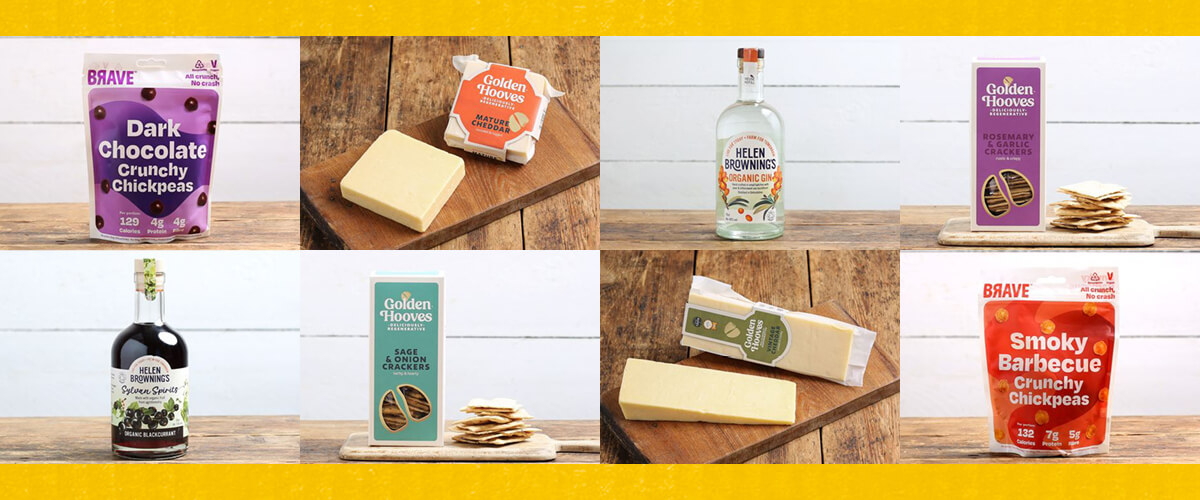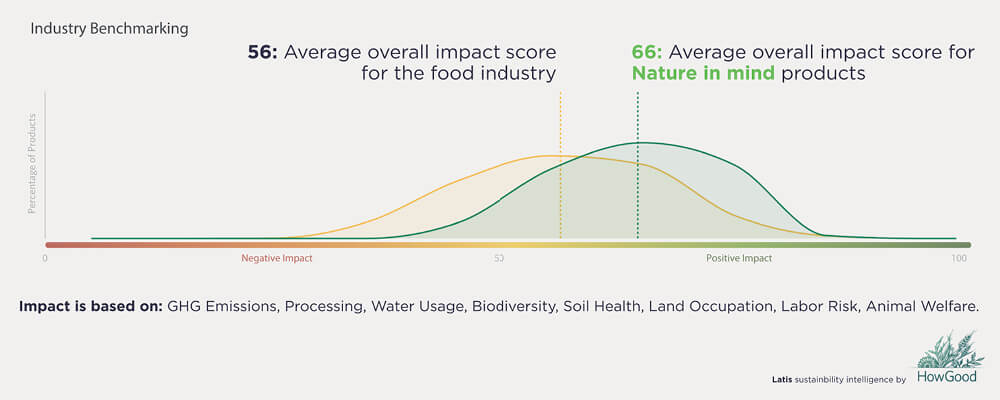Keeping ‘Nature in Mind’ with the Ellen MacArthur Foundation

What’s the Ellen MacArthur Foundation?
The Ellen MacArthur Foundation is an international charity on a mission to accelerate the transition to a circular economy, to help tackle some of the biggest challenges of our time. Including climate change, biodiversity loss, waste and pollution.
Increasingly based on renewable energy, a circular economy is driven by design to eliminate waste and pollution, circulate products and materials at their highest value, and regenerate nature. This all helps create resilience and prosperity for business, the environment and people.
What’s the Big Food Redesign Challenge?
In 2023, the Ellen MacArthur Foundation partnered with the Sustainable Food Trust to launch the Big Food Redesign Challenge, to encourage the food industry to adopt more circular practices and build a better food system. The practices include switching to upcycled food byproducts, choosing more diverse or lower impact ingredients, and using regeneratively-farmed ingredients shown to be better for biodiversity. These improvements – or redesigns – mean that these products are better for climate, biodiversity and soil health, compared to industry norms.
In total, 57 makers submitted 141 products, all designed to support nature. We’ve chosen some of our favourites to join our range. You can find them in our Future Food category – look out for the ‘Nature in Mind’ label.
Why should we all keep ‘Nature in Mind’?
And what does that mean?
As our friends at the Ellen MacArthur Foundation told us:
“The current food industry is one of the biggest drivers of biodiversity loss and accounts for a third of global greenhouse gas emissions. By rethinking ingredients and how products are designed and made, food brands like Abel & Cole have the power to help consumers shop for products that are better for nature and climate.
“The phrase ‘Nature in Mind’ means food products that have been designed in line with circular economy principles. More specifically, the products that are part of our Big Redesign Challenge have been assessed as aligning with a design framework that supports improved outcomes for nature.”
This means that each product includes ingredients that are upcycled, diverse and/or lower impact, and that the maker shared information with the Big Food Redesign Challenge team that suggests the ingredients are being sourced in a way that improves the environmental impact of the product. It also means that the packaging is designed to be reusable, recyclable, or compostable.
Assessment of environmental impact has been conducted using global research data comprising metrics on greenhouse gas emissions, biodiversity impact, blue water use, soil health, land occupation, labour risk and animal welfare (where relevant). Analysis of the data provided by the makers of ‘Nature in Mind’ products compared with that of food products currently on the market has found that the environmental impact scores for ‘Nature in Mind’ products are, on average, significantly better than the food industry average*.

This graph presents the product impact scores calculated by HowGood for ‘Nature in Mind’ products (green) and the average product scores for the wider food industry (yellow). Scores are developed using research data and are provided by HowGood. HowGood note that the information is provided “AS IS” and that it makes no guarantees and disclaims all warranties that the information provided is accurate or complete. The information is based on assumptions, estimates and best practices employed by HowGood’s team, information provided by Big Food Redesign Challenge participants, as well as other information from third-party sources and other HowGood customers. ‘Nature in Mind’ product scores were developed using the most representative data available for constituent ingredients. HowGood shall not be held responsible for any information provided by Big Food Redesign Challenge participants, other customers, or third-party sources. The report was created on 1/8/2025 and relates to information available at that time. For more information about the data methodology and approach visit: https://latis-help.howgood.com/en/collections/8959557-howgood-s-sustainability-metrics
*Note that individual product impact varies and this data excludes packaging and transport impacts.
Published May 2025


